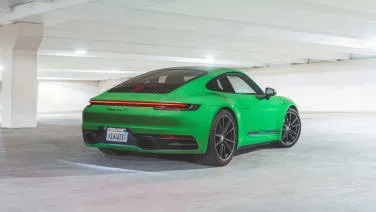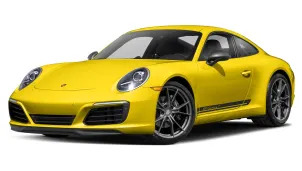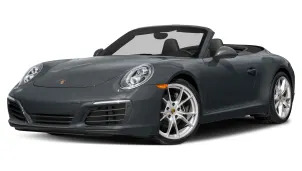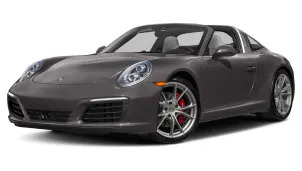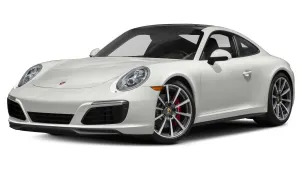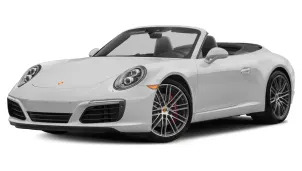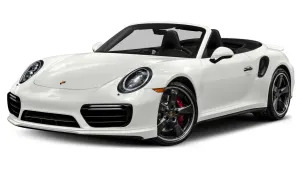GT2 RS 2dr Rear-Wheel Drive Coupe
2018 Porsche 911

Industry
The sound of the $293,200 911 GT2 RS is like nothing in the current Porsche lineup – or on the road right now, period. Hammer the floor-mounted accelerator pedal and the GT2 RS spits raw, melodious frequencies that will rumble your spine and make your hair stand on end.
"We wanted to make an honest turbo," Porsche's Andreas Preuninger, who's in charge of Porsche high-performance GT range of cars like the 911 GT3 and Cayman GT4, says, "because nowadays turbos tend to get modified in a way that they feel like 10-liter [naturally aspirated] engines, and that's not …
Full Review
The sound of the $293,200 911 GT2 RS is like nothing in the current Porsche lineup – or on the road right now, period. Hammer the floor-mounted accelerator pedal and the GT2 RS spits raw, melodious frequencies that will rumble your spine and make your hair stand on end.
"We wanted to make an honest turbo," Porsche's Andreas Preuninger, who's in charge of Porsche high-performance GT range of cars like the 911 GT3 and Cayman GT4, says, "because nowadays turbos tend to get modified in a way that they feel like 10-liter [naturally aspirated] engines, and that's not …
Hide Full Review
"We wanted to make an honest turbo," Porsche's Andreas Preuninger, who's in charge of Porsche high-performance GT range of cars like the 911 GT3 and Cayman GT4, says, "because nowadays turbos tend to get modified in a way that they feel like 10-liter [naturally aspirated] engines, and that's not …
Hide Full Review
Retail Price
$293,200
MSRP / Window Sticker Price
| Engine | 3.8L H-6 |
| MPG | 15 City / 21 Hwy |
| Seating | 2 Passengers |
| Transmission | 7-spd auto-shift man w/OD |
| Power | 700 @ 7000 rpm |
| Drivetrain | rear-wheel |
Smart Buy Program is powered by 


